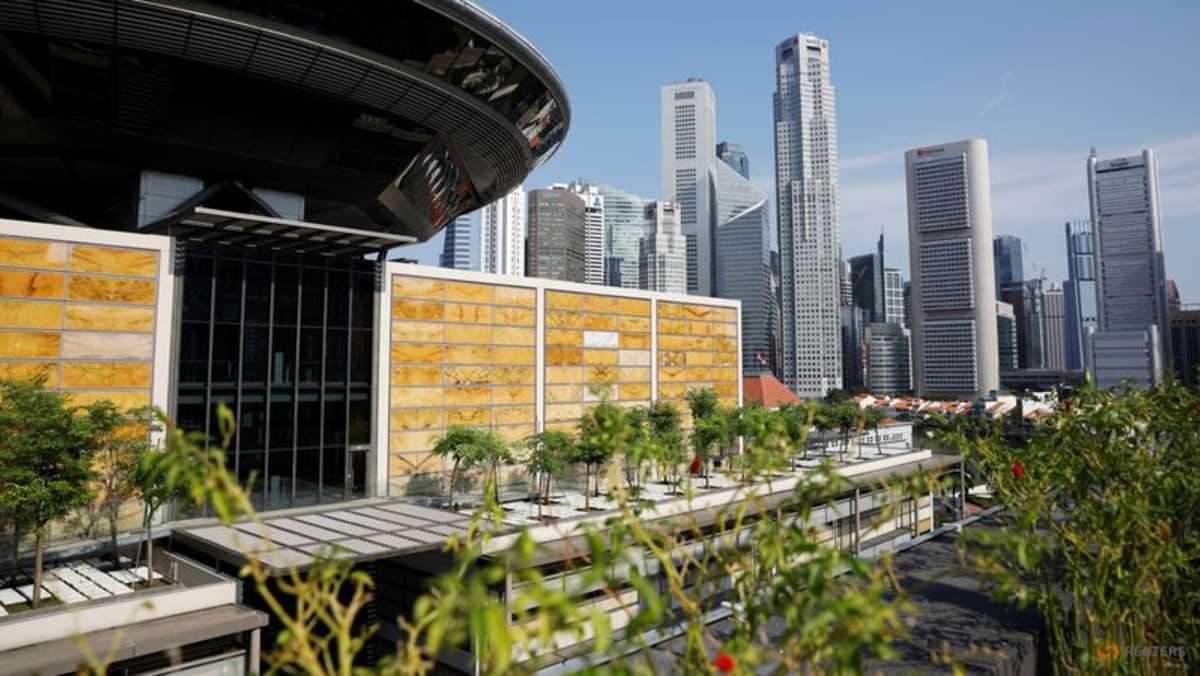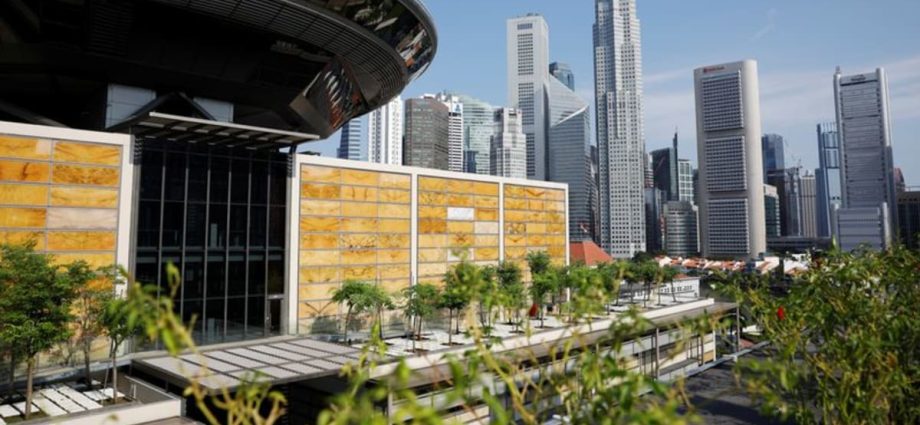
SINGAPORE: A man who was accused of sending sexual videos to a woman turned around and pointed the finger at the Attorney-General’s Chambers (AGC) after he was acquitted, seeking S$3,000 (US$2,196) in compensation for what he called “malicious” prosecution.
The Court of Appeal dismissed Mr Tan Wei Wen’s applications in a judgment released on Tuesday (Oct 31), saying there was no bad faith on the part of the prosecution.
Mr Tan was charged with two counts of insulting a woman’s modesty on Nov 26, 2019.
The charges alleged that he sent a woman a video of himself in a sex act in May 2018. He was also accused of sending the same woman a video of a man in a sex act with her photo in the background, accompanied by crude words with sexual connotations.
Mr Tan claimed trial to the charges, and the trial was fixed for Jul 21 and Jul 22, 2020.
However, about two weeks before the trial, the prosecution applied to withdraw the charges against Mr Tan.
The district court granted him a discharge amounting to an acquittal on Jul 7, 2020.
Because of the COVID-19 pandemic, this order was made without requiring the parties’ attendance in court.
In March 2021, Mr Tan sought compensation from the prosecution. He applied for a compensation order under the Criminal Procedure Code, on the basis that the prosecution against him was not in good faith and that it was “wrongful to even begin with”.
He sought S$3,000 for the abuse of the judicial process and S$10 per day from the date his phone was seized by the police, for loss of income from phone rental.
Mr Tan said the prosecution was “malicious” in his case and had commenced without sufficient evidence. He pointed to their decision to withdraw the charges and the fact that no evidence was admitted at the charging stage.
He alleged that he was charged after he refused to accept a written warning for the sale of obscene material. He also claimed that the prosecution had dragged out his case in an attempt to coerce him to plead guilty, and that a plead-guilty offer was made to incentivise him to do so.
THE PROSECUTION’S EXPLANATION
In response, the prosecution said Mr Tan had failed to prove his allegations of frivolous and vexatious prosecution.
They explained that the decision to withdraw the charges was consistent with the prosecution’s ongoing practice of assessing the evidence continually and the appropriateness of the case for prosecution throughout its course, taking into account any new developments.
The prosecution said that the mere fact that charges were withdrawn could not lead to an inference that evidence was so insufficient from the outset that the case should never have been brought to court.
The prosecution had responded to Mr Tan’s emails in an attempt to explain the evidence it had against him.
In one letter dated December 2020, the prosecution said one of the videos captured part of Mr Tan’s face and a blue shirt that was found in his home.
The background of the video also matched the tiled wall of Mr Tan’s home toilet.
During a police interview in June 2018, Mr Tan was told that there was a report of a person sending a video to a female subject via Instagram, and Mr Tan’s name had surfaced in the course of investigations.
When asked to comment on this, Mr Tan said he had previously taken a video of his private parts with his phone in his home toilet and that he had lost his phone in 2017.
He also claimed that someone might have used his phone to disseminate the video.
When Mr Tan was served with notices of the two charges against him in November 2019, he did not dispute that he was the person who performed the acts as depicted in the video of the first charge.
Instead, he claimed that in 2015 or earlier, the pictures from his phone had been leaked to an unknown person who had been blackmailing him for money.
The prosecution said this claim was not supported by forensic investigations, which showed that the videos were sent from IP addresses that were traced back to Mr Tan’s home and his father’s coffee shop.
The prosecution said it exercised its prosecutorial discretion in withdrawing the charges.
“In deciding to withdraw your charges, the prosecution considered, among others, the fact that you did not commit further offences after the incidents referred to in the charges,” said the prosecution.
The prosecution said it was an accepted practice that a plead-guilty offer may be extended to an accused person on the basis that he may be sentenced on a lesser number of charges or on charges which draw less severe penalties.
Mr Tan’s application for compensation was dismissed by a district judge in June 2022, who applied the principles in the case of Parti Liyani.
In Ms Parti’s case, the High Court stated that an application may establish that a prosecution brought against him was frivolous or vexatious by proving that the prosecution was marked by evidential insufficiency or that it was brought because of malice, dishonesty or an improper motive.
The judge found that Mr Tan had not shown either of these things.
Mr Tan filed a magistrate’s appeal against the decision, which was similarly dismissed. He suggested that the prosecution had acted in a “calculated manner” to prevent him from bringing a civil action for malicious prosecution.
He did not have a lawyer and pursued the court actions on his own, leaving the Court of Appeal to dissect what he actually wanted from his various applications.
The Apex Court said there could be no appeal because the High Court had already heard the appeal against the district judge’s decision.
Mr Tan’s applications were dismissed as they were “bound to fail”, whether they were as an appeal, an application for permission to review, or as an application to refer a question of law to the Court of Appeal.

